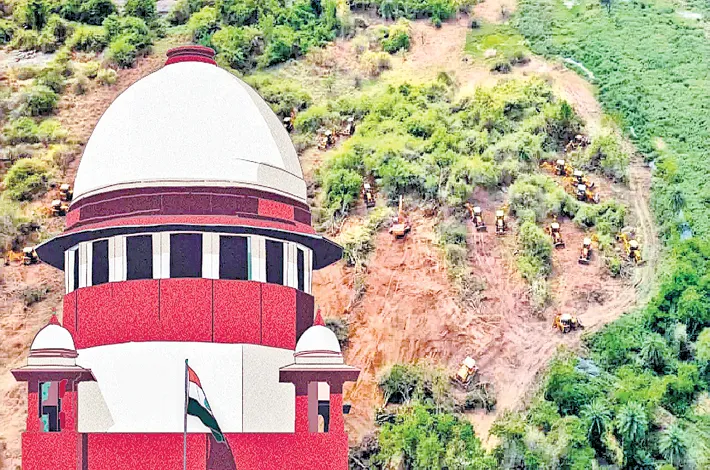Replant Kancha Gachibowli Trees: SC to Telangana
14-08-2025 12:00:00 AM

metro india news I hyderabad
The Supreme Court of India has directed the Telangana government to prioritise reforestation of the Kancha Gachibowli area in Hyderabad, where large-scale tree felling sparked widespread concern. The bench, comprising Chief Justice of India B.R. Gavai and Justice A.G. Masih, emphasised environmental restoration, warning that failure to comply could lead to severe consequences, including potential imprisonment for senior officials, including the Chief Secretary.
On August 13 (Wednesday), the Telangana government informed the Supreme Court of a new proposal for the IT site, aiming to balance development with environmental interests. The Court acknowledged this commitment but stressed that replanting trees and restoring the forest’s status quo is paramount. “Replant the trees first, then we shall pay you real compliments,” CJI Gavai remarked, urging a concrete restoration plan. The case, reflecting broader tensions between development and ecological preservation, is adjourned for six weeks, with the Court closely monitoring compliance.
The controversy centres on the deforestation of approximately 100 acres in Kancha Gachibowli, a 400-acre forested area near the University of Hyderabad, which conservationists and students classify as a forest under the Forest Conservation Act. The land, rich in biodiversity with rare flora, fauna, and ancient rock formations, was cleared for a proposed IT and mixed-use project by the Telangana State Industrial Infrastructure Corporation (TGIIC).
The Supreme Court, taking suo motu cognisance on April 3, 2025, halted further tree felling, citing an “alarming picture” of environmental destruction caused by heavy machinery over a long weekend, suggesting a premeditated act.
The Court criticised the Telangana government for bypassing environmental clearances and questioned the urgency of the deforestation, which violated a March 4, 2025, order prohibiting forest depletion nationwide. The Central Empowered Committee (CEC), in its May 15 report, confirmed the area’s forest status, recommending its designation as a Conservation Reserve under the Wildlife Protection Act, 1972, to protect it from commercial exploitation. The CEC highlighted the absence of an Environmental Impact Assessment and the state’s inadequate “Consent for Establishment” application.








